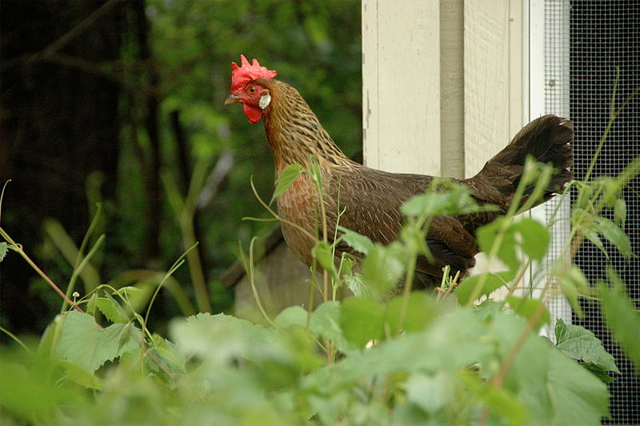The Scariest Thing About NYT's Chicken Video Is There Aren't Many Alternatives
By Melissa McEwen in Food on Dec 5, 2014 10:55PM
Nicholas Kristof of the New York Times brought a lot of attention to a video of a Perdue contract farmer’s flocks which show some pretty unhealthy chickens. Typically one of the responses to these kind of agriculture videos is “buy your chicken from a local small farmer.” But nearly every farmer, including the ones selling at the farmer’s market, gets their chicks from the same type of hatcheries that Perdue does. These are chickens bred to produce giant breasts at the expense of their own health.
Of course some of the video is a little questionable. Only 1,000 chicks die out of a flock of 30,000? That’s a mortality rate that wild birds would be truly envious of. And many free-range outdoor chickens are eaten by predators, often an equally grisly end. Also the fact is this method of intensive chicken rearing is more efficient per input unit. If we want to make our food system more sustainable we have to make tough choices between consuming less of certain resource-intensive products or making them more efficient, but the cost of that is often borne by the animals and the environment.
But as far as the miserable-looking adults, that’s simply what this type of chicken looks like. And though you can certainly give them slightly better lives, they are bred to essentially be decrepit. While your local farmer might allow the adults some sunlight, they can’t control the conditions at the hatchery.
Earlier this year I bought some heritage naturally-bred chicken from farmer Frank Reese. It was a different experience to cook, with far less breast meat (though it was all delicious) and it was more expensive. You won’t find this at nearly any restaurant, even restaurants touting “free range” and “sustainable” chicken. I had to order it online from Heritage Foods. But knowing what I know about chicken, I’ve decided simply to treat chicken like we tend to do turkey and have a nice one a few times a year and hope it becomes easier to find better chicken sometime in the future, though it's unlikely farmers raising heritage birds will ever raise as many as Perdue's intensive farmers can. Luckily the world is full of plenty of other foods to enjoy.
